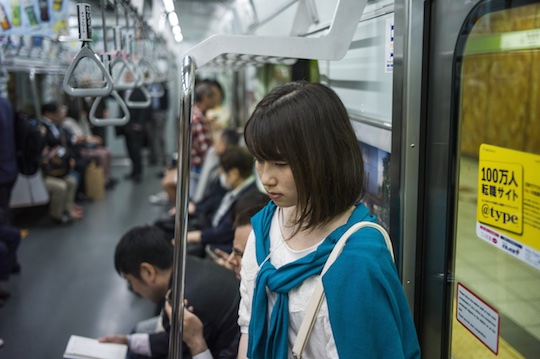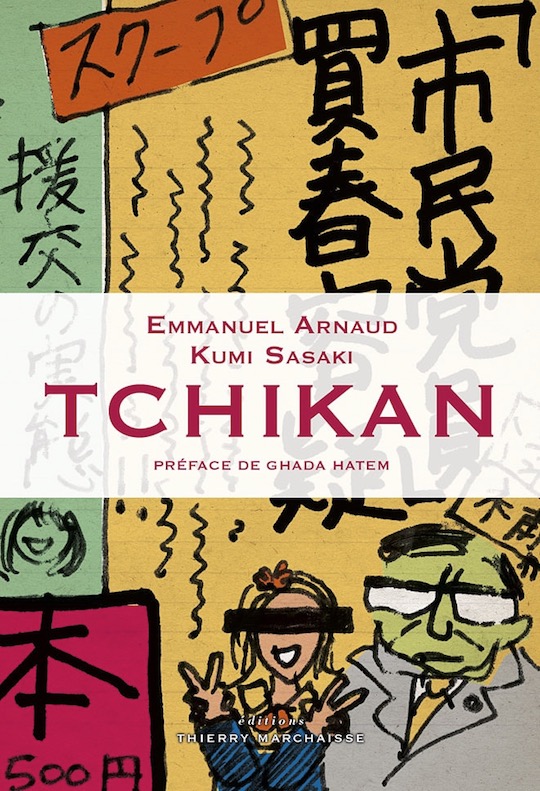Chikan is a chronic problem on public transport in Japan that doesn’t seem to be getting better any time soon. Despite the introduction of women-only carriages during rush hour and the display of posters and “shame stickers” warning offenders that groping is a crime, the number of men who do it never seems to decrease. If #MeToo was just about chikan, the number of tweets would likely break Twitter’s servers.
Kumi Sasaki says she was groped “nearly daily” on her commute to and from school in Japan. She was aged between 12 and 18.
Her first experience of chikan was on the crowded JR Yamanote Line in Tokyo.
The fingers of this unfamiliar hand went inside the collar of my blouse. Then he touched my back, he touched my legs, my waist, even my butt. He placed his hand directly under the cheeks, quietly raising up my skirt by just moving his fingers, and he touched my left thigh under my skirt.
Naturally, given her young age at the time, she didn’t really understand what was happening and went into shock — a fact surely exploited by the men involved.
Image may be NSFW.
Clik here to view.
She says the perpetrators of the groping were men aged from their late teens up to their seventies. One middle-aged man even followed her home and told her he wanted her to have his babies.
The trauma of the continual assaults led Sasaki to self-harm and attempted suicide. She is now in her mid-thirties but lives outside Japan.
Sasaki has written a book about her six years as a groping victim.
Image may be NSFW.
Clik here to view.
Today, Sasaki lives in Paris and her book was first published in French as Tschikan, co-written by Emmanuel Arnaud. We presume that an English-language and Japanese-language version will be released at some point.
While we support raising awareness of the issue to empower survivors and improve public awareness about tackling it, we do wonder if foreign-language publications like this risk serving as mere sexploitation, playing up to Western fantasies and myths about “kinky Japan.” Of course, we are always troubled by how much this blog is also contributing to that discourse!
Image may be NSFW.
Clik here to view.
Clik here to view.
 Image may be NSFW.
Image may be NSFW.Clik here to view.
 Image may be NSFW.
Image may be NSFW.Clik here to view.
 Image may be NSFW.
Image may be NSFW.Clik here to view.
 Image may be NSFW.
Image may be NSFW.Clik here to view.
 Image may be NSFW.
Image may be NSFW.Clik here to view.

Clik here to view.

